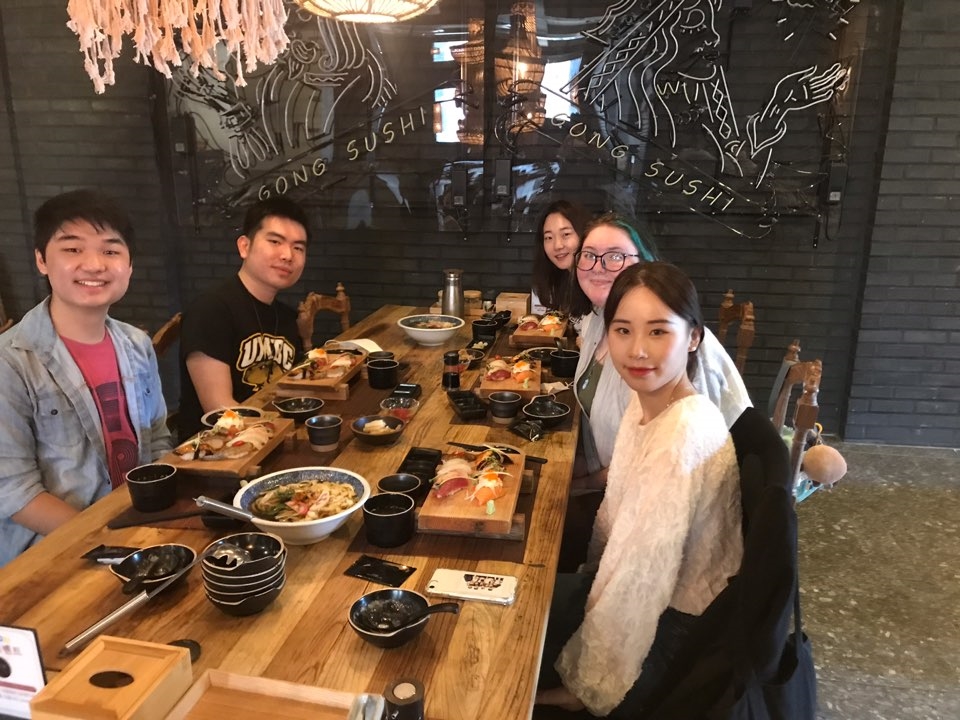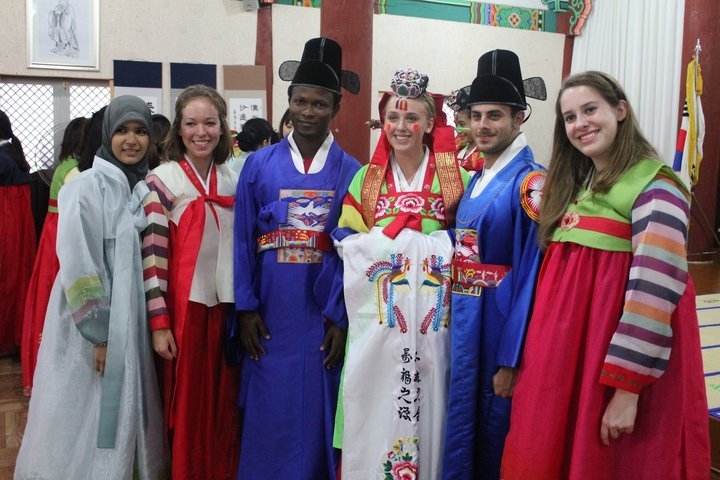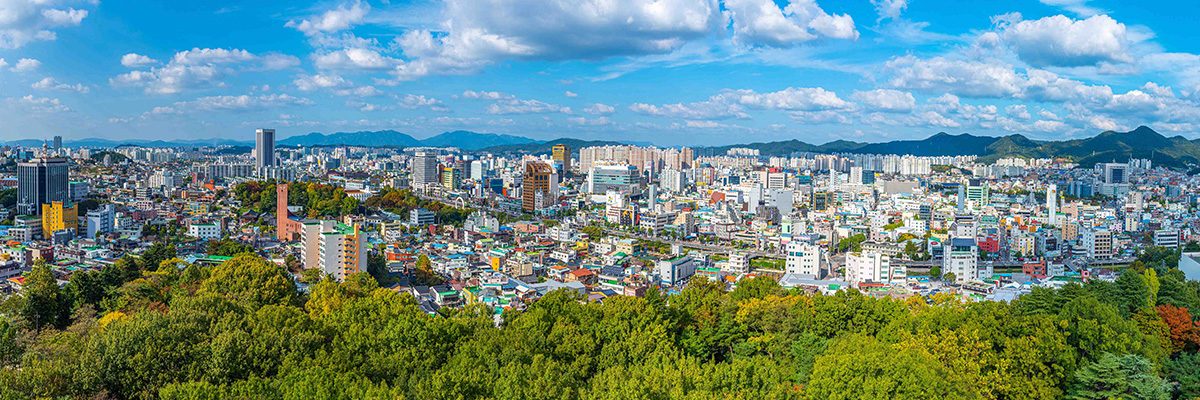Program Highlights for Gwangju, Korea
Language spoken:
Korean
Currency:
South Korean Won (KRW, ₩)
Climate:
Subtropical
City type:
Metropolis (Population >500,000)
Program type:
Partnership
Host university:
Chonnam National University
Language of instruction:
English, Korean
Terms offered:
Spring, Summer, Fall, Yearlong
Program capacity:
Summer: 20 students
Fall: 30 students
Credit type:
Overseas credit
Summer 2024:
March 1
Fall/Yearlong 2024-25:
April 15
Spring 2025:
October 15
Eligibility:
- Minimum GPA: 2.5
- Minimum class standing: Sophomore
Scholarships and Financial Aid:
Deadlines vary
- Choose a campus: Gwangju (meaning “the province of light”) or Yeosu (meaning “beautiful waters”).
- Choose courses in Korean language, culture and history; business, management, and economics; literature; mechanical engineering; media; political science; psychology; and environmental and health studies on the Gwangju campus. Or participate in the intensive Korean language program on the Yeosu campus.
- Join in various field trips and extracurricular activities, which may include a boat cruise, the Gwangju May 18 Memorial Park, a Korean Folk Village and Temple Stay, Gyeongju, Busan, and the Boryeong Mud Festival.
Why Study in Gwangju/Yeosu?


Live and study in Gwangju, the sixth largest city in one of the most rapidly developing nations in East Asia, to fully enjoy the beautiful natural habitat, delicious cuisine, and rich artistic history of southwestern Korea. An hour and a half by bullet train south of Seoul, it's in the middle of South Jeolla province and is one of the most historically significant areas in the region. Gwangju was established as a city in 57 BC and is the birthplace of the modern democratic movement in Korea. During the period of Japanese rule, students in Gwangju ignited one of the major nationwide uprisings of the colonial period. Fifty years later, Gwangju was the site of the May 18 Democratic Uprising against the then-military dictatorship. It’s now home of the Square of Democracy and National Cemetery that commemorates the 518 uprising.
Located in the middle of the south sea of the Korean peninsula, Yeosu is known as the ‘Naturally Gifted City’, the ‘City of Patriotic Loyalty’, and the ‘City of Harmony’. It’s an archipelago made up of 365 islands in total, with the islands around Gamak and Yeoja Bays taking the shape of a butterfly. Known for its stunning views of the sea, Yeosu became the city that it is today after unifying Yeosu-si, Yeocheon-si, and Yeocheon-gun in 1998 and holds the spirit of admiral Yi Sun Shin. Admiral Yi Sun Shin was at the forefront of protecting Korea from the Japanese invasion in 1592 and his interment in Yeosu is a source of pride among its people.
The four-week summer Gwangju program offers courses in Korean language, culture and history; business, management, and economics; literature; mechanical engineering; media; political science; psychology; and environmental and health studies. Take full advantage of field trips and co-curricular cultural activities to have a truly enriched cultural experience.

